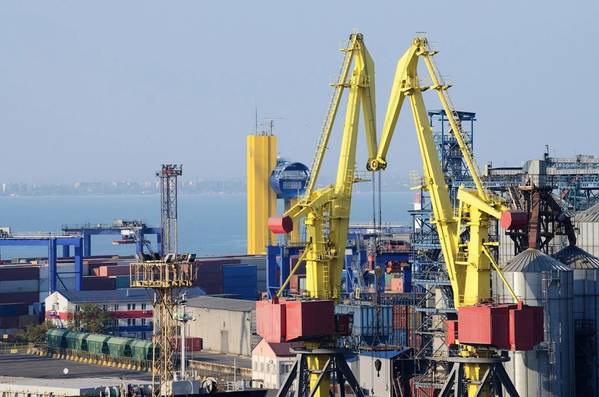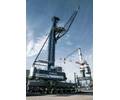
Ukrainian air defence systems were engaged in the early hours of Wednesday in repelling a Russian air attack on the southern port of Odesa for a second consecutive night, the region's governor said.
Russia struck Ukrainian ports on Tuesday, a day after pulling out of a U.N.-backed deal for safe Black Sea grain exports, a decision that raised concern primarily in Africa and Asia of rising food prices and hunger.
"Do not approach the windows, do not shoot or show the work of air defence forces," Odesa governor Oleh Kiper said on the Telegram messaging app.
All of the eastern part of Ukraine was under air raid alerts, starting soon after midnight on Wednesday.
In other battlefield reports, Moscow and Kyiv gave vastly different accounts of fighting in northeastern Ukraine on Tuesday.
Six weeks since Ukraine launched a counteroffensive in the east and south, Russia is mounting a ground offensive of its own in the northeast. Moscow says the Ukrainian assault has failed.
A Russian Defence Ministry spokesman said its forces had advanced by up to 2 km (1.2 miles) in the direction of Kupiansk, an important railway junction in the northeastern Kharkiv region.
But Ukrainian Deputy Defence Minister Hanna Maliar said the initiative in the area had switched to Ukrainian forces.
She said Ukrainian forces made new gains near Bakhmut in the east, a town that was captured by Russian forces in May after months of battles.
Valery Shershen, a spokesperson for Ukrainian troops on the southern front, reported heavy fighting around the village of Staromayorske. "We have made advances through the streets," Shershen told the Espreso TV online outlet but said Ukrainian forces did not have complete control of the village.
Russian Defence Ministry accounts said Moscow's forces had hit groups of Ukrainian soldiers around Staromayorske.
Reuters could not independently verify the battlefield reports of either side.
Since Ukraine began its counteroffensive last month, its forces equipped with billions of dollars worth of new Western weapons and ammunition have yet to attempt a major breakthrough across heavily defended Russian lines.
UN works on ideas for grain exports
At the United Nations on Tuesday, U.N. spokesman Stephane Dujarric said there were a "number of ideas being floated" to help get Ukrainian and Russian grain and fertilizer to global markets. Moscow's decision raised concern primarily in Africa and Asia of rising food prices and hunger.
The Black Sea deal was brokered by the U.N. and Turkey in July last year to combat a global food crisis worsened by Russia's February 2022 invasion of Ukraine and its blockade of Ukrainian ports. The two countries are among the world's top grain exporters.
For Ukraine's part, "we are fighting for global security and for our Ukrainian farmer" and working on options to keep commitments on food supply, President Volodymyr Zelenskiy said in his nightly video address on Tuesday.
Moscow spurned calls from Ukraine to allow shipping to resume without Russian participation, with the Kremlin openly saying ships entering the area without its guarantees would be in danger.
"We're talking about an area that's close to a war zone," Kremlin spokesman Dmitry Peskov said. "Without the appropriate security guarantees, certain risks arise there. So if something is formalised without Russia, these risks should be taken into account."
Russia says it could return to the grain deal, but only if its demands are met for rules to be eased for its own exports of food and fertiliser. Western countries call that an attempt to use leverage over food supplies to force a weakening in financial sanctions, which already allow Russia to sell food.
(Reuters - Reporting by Reuters bureaux; Writing by Grant McCool; Editing by Lincoln Feast.)



